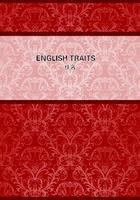
第61章
Then, they like its independence; they do not know, when they take it up, what their paper is going to say: but, above all, for the nationality and confidence of its tone. It thinks for them all; it is their understanding and day's ideal daguerreotyped. When I see them reading its columns, they seem to me becoming every moment more British. It has the national courage, not rash and petulant, but considerate and determined. No dignity or wealth is a shield from its assault. It attacks a duke as readily as a policeman, and with the most provoking airs of condescension. It makes rude work with the Board of Admiralty. The Bench of Bishops is still less safe.
One bishop fares badly for his rapacity, and another for his bigotry, and a third for his courtliness. It addresses occasionally a hint to Majesty itself, and sometimes a hint which is taken. There is an air of freedom even in their advertising columns, which speaks well for England to a foreigner. On the days when I arrived in London in 1847, I read among the daily announcements, one offering a reward of fifty pounds to any person who would put a nobleman, described by name and title, late a member of Parliament, into any county jail in England, he having been convicted of obtaining money under false pretences.
Was never such arrogancy as the tone of this paper. Every slip of an Oxonian or Cantabrigian who writes his first leader, assumes that we subdued the earth before we sat down to write this particular "Times." One would think, the world was on its knees to the "Times"Office, for its daily breakfast. But this arrogance is calculated.
Who would care for it, if it "surmised," or "dared to confess," or "ventured to predict," &c. No; _it is so_, and so it shall be.
The morality and patriotism of the "Times" claims only to be representative, and by no means ideal. It gives the argument, not of the majority, but of the commanding class. Its editors know better than to defend Russia, or Austria, or English vested rights, on abstract grounds. But they give a voice to the class who, at the moment, take the lead; and they have an instinct for finding where the power now lies, which is eternally shifting its banks.
Sympathizing with, and speaking for the class that rules the hour, yet, being apprised of every ground-swell, every Chartist resolution, every Church squabble, every strike in the mills, they detect the first tremblings of change. They watch the hard and bitter struggles of the authors of each liberal movement, year by year, -- watching them only to taunt and obstruct them, -- until, at last, when they see that these have established their fact, that power is on the point of passing to them, -- they strike in, with the voice of a monarch, astonish those whom they succor, as much as those whom they desert, and make victory sure. Of course, the aspirants see that the "Times" is one of the goods of fortune, not to be won but by winning their cause.
"Punch" is equally an expression of English good sense, as the "London Times." It is the comic version of the same sense. Many of its caricatures are equal to the best pamphlets, and will convey to the eye in an instant the popular view which was taken of each turn of public affairs. Its sketches are usually made by masterly hands, and sometimes with genius; the delight of every class, because uniformly guided by that taste which is tyrannical in England. It is a new trait of the nineteenth century, that the wit and humor of England, as in Punch, so in the humorists, Jerrold, Dickens, Thackeray, Hood, have taken the direction of humanity and freedom.
The "Times," like every important institution, shows the way to a better. It is a living index of the colossal British power. Its existence honors the people who dare to print all they know, dare to know all the facts, and do not wish to be flattered by hiding the extent of the public disaster. There is always safety in valor. Iwish I could add, that this journal aspired to deserve the power it wields, by guidance of the public sentiment to the right. It is usually pretended, in Parliament and elsewhere, that the English press has a high tone, -- which it has not. It has an imperial tone, as of a powerful and independent nation. But as with other empires, its tone is prone to be official, and even officinal. The "Times"shares all the limitations of the governing classes, and wishes never to be in a minority. If only it dared to cleave to the right, to show the right to be the only expedient, and feed its batteries from the central heart of humanity, it might not have so many men of rank among its contributors, but genius would be its cordial and invincible ally; it might now and then bear the brunt of formidable combinations, but no journal is ruined by wise courage. It would be the natural leader of British reform; its proud function, that of being the voice of Europe, the defender of the exile and patriot against despots, would be more effectually discharged; it would have the authority which is claimed for that dream of good men not yet come to pass, an International Congress; and the least of its victories would be to give to England a new millennium of beneficent power.